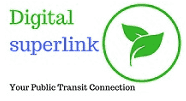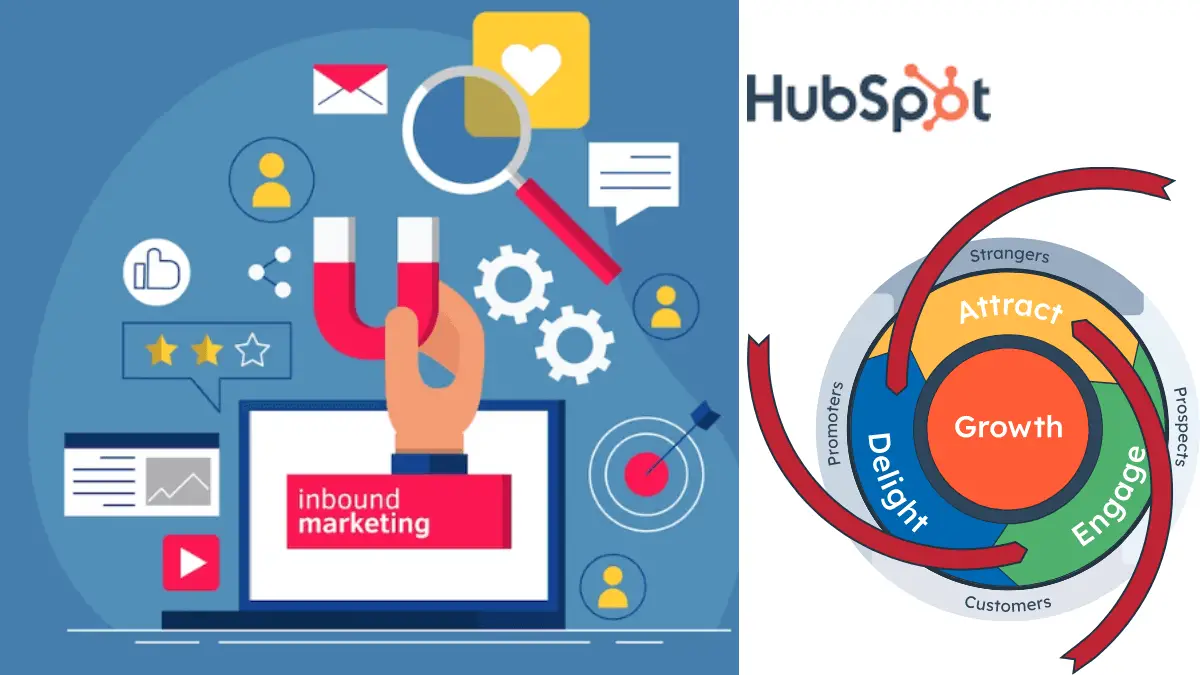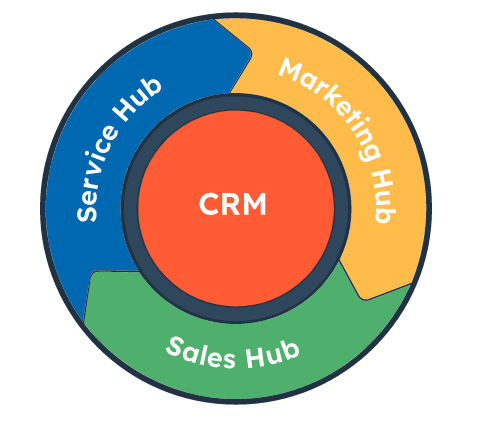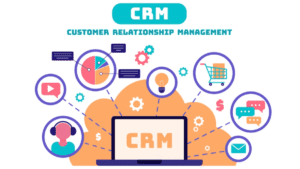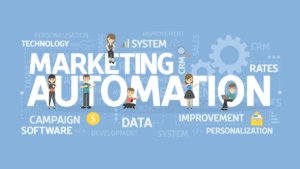Are you ready to skyrocket your business and leave your competition in the dust? The key lies in HubSpot Inbound Marketing, the industry’s best-kept secret. Brace yourself for a marketing revolution that will transform the way you attract, engage, and convert customers.
With HubSpot’s powerful inbound marketing strategies, you’ll unlock a treasure trove of techniques designed to captivate your audience. Say goodbye to outdated marketing methods and hello to a new era of success. From crafting irresistible content to nurturing leads through their buyer’s journey, HubSpot’s got your back every step of the way.
Leave your competitors in awe as you harness the full potential of HubSpot’s cutting-edge tools and technology. Fuel your growth with content creation, SEO optimization, social media mastery, and more—all seamlessly integrated into one platform. It’s time to level up your marketing game and take your brand to unparalleled heights.
Ready to witness the magic? Dive headfirst into HubSpot’s Inbound Marketing techniques and watch as your business skyrockets to new heights. Unleash the power of HubSpot and leave your mark on the industry. Don’t let this opportunity slip through your fingers—embrace the inbound revolution today!
What Is Inbound Marketing?
Inbound marketing is a marketing methodology that focuses on creating valuable content and experiences for potential customers, with the goal of attracting, engaging, and delighting them.
Unlike traditional marketing, which often relies on interrupting potential customers with ads and promotions, inbound marketing aims to provide useful information that addresses the customer’s needs and interests.
The inbound marketing approach involves several stages, including:
- Attracting visitors to your website through search engine optimization (SEO), social media, and other channels.
- Converting visitors into leads by offering valuable content in exchange for their contact information, such as email addresses.
- Nurturing leads through targeted email campaigns and other personalized content helps guide them through the buyer’s journey.
- Closing the sale by providing relevant offers and solutions that address the customer’s specific needs and pain points.
- Delighting customers by continuing to provide valuable content and exceptional customer service, with the goal of turning them into loyal brand advocates.
Overall, inbound marketing is a customer-centric approach that aims to build long-term relationships with potential and existing customers by providing them with valuable information and experiences that help them achieve their goals.
To apply for the HubSpot Inbound Marketing Certification, Follow these Step-by-Step Instructions:
Step 1: Create a HubSpot Account
Visit the HubSpot website (hubspot.com) and create a new account if you don’t already have one. You’ll need this account to access the certification materials and take the exam.
Step 2: Access the Inbound Marketing Certification Course
Once you have created your HubSpot account, log in and navigate to the HubSpot Academy section. Look for the “Certifications” tab and click on it. Search for the “Inbound Marketing Certification” course and click on it to access the course material.
Step 3: Study the Course Material
The Inbound Marketing Certification course consists of video lessons, tutorials, and supplementary resources. Take your time to go through each module, understanding the concepts and strategies taught. It covers topics like inbound methodology, buyer personas, blogging, SEO, social media promotion, email marketing, and more.
Step 4: Complete the Course Lessons
As you progress through the course material, make sure to complete each lesson and mark it as “done” within the course. This will help you keep track of your progress and ensure that you cover all the necessary topics.
Step 5: Take the Certification Exam
After studying the course material, you’ll be ready to take the certification exam. The exam is available within the Inbound Marketing Certification course. Click on the exam link and follow the instructions to start the test. The exam consists of multiple-choice questions based on the course material.
Step 6: Pass the Exam
Answer the exam questions to the best of your knowledge. You’ll need to achieve a passing score to earn the Inbound Marketing Certification. The passing score may vary, but typically it’s around 80%. Once you complete the exam, submit your answers for evaluation.
Step 7: Receive and Share Your Certification
After submitting your exam, you’ll receive your certification results immediately. If you pass, you can download your certificate from the HubSpot Academy website. You can also share your certification on professional platforms like LinkedIn to showcase your skills and expertise in inbound marketing.
That’s it! By following these steps, you can apply for and complete the HubSpot Inbound Marketing Certification. Good luck with your certification journey!
“Unlock the Secrets of Inbound Marketing with a FREE Sign-Up for the HubSpot Certification!”
“10 Benefits of HubSpot Inbound Marketing Certification”
Step 1: Discover the Hidden Secrets of HubSpot Inbound Marketing Certification!
Step 2: Unleash Your Marketing Potential with HubSpot Inbound Marketing Certification!
Step 3: Skyrocket Your Career with the Power of HubSpot Inbound Marketing Certification!
Step 4: Dominate the Digital Marketing Game with HubSpot Inbound Marketing Certification!
Step 5: Become a Marketing Rockstar with HubSpot Inbound Marketing Certification!
Step 6: Unlock the Door to Success with HubSpot Inbound Marketing Certification!
Step 7: Join the Ranks of Marketing Titans with HubSpot Inbound Marketing Certification!
Step 8: Boost Your Business and Crush Your Competition with HubSpot Inbound Marketing Certification!
Step 9: Drive Insane Traffic and Convert Like a Pro with HubSpot Inbound Marketing Certification!
Step 10: Witness the Miraculous Growth of Your Business with HubSpot Inbound Marketing Certification!
Bonus Step: Gain Exclusive Access to Cutting-Edge Marketing Strategies and Tools with HubSpot Inbound Marketing Certification!
Benefits of HubSpot Inbound Marketing Step by Step
hubspot inbound marketing
HubSpot is an all-in-one inbound marketing platform that helps businesses attract, engage, and delight customers. Here are some benefits of HubSpot’s inbound marketing approach, step by step:
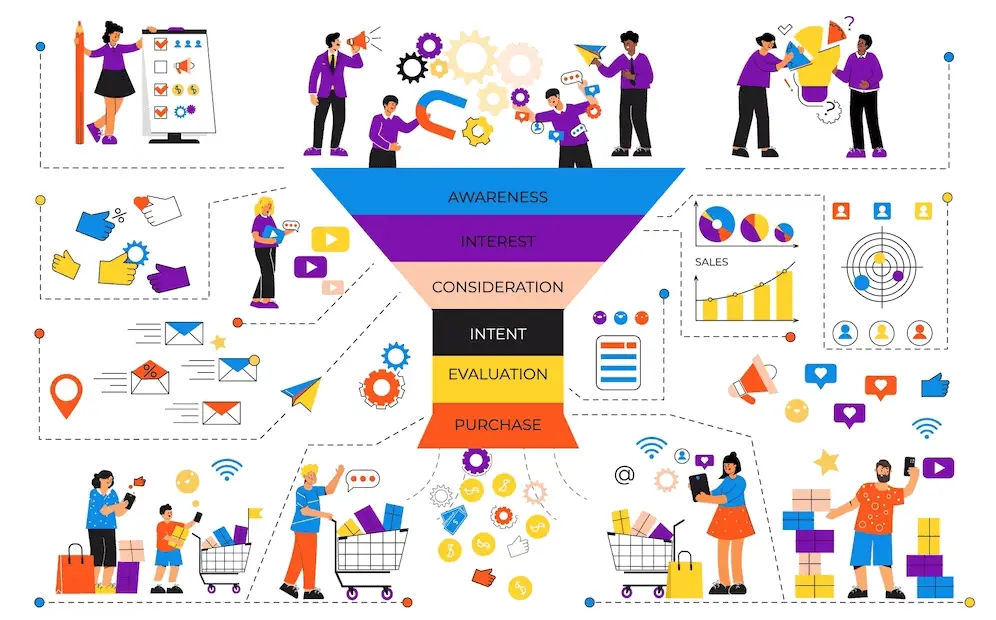
Attracting Visitors: HubSpot helps you attract visitors to your website through various inbound marketing techniques such as content marketing, search engine optimization (SEO), and Social Media Marketing. By creating valuable and educational content, optimizing your website for search engines, and promoting your content on social media, you can attract more visitors to your site.
Converting Visitors into Leads: Once you have attracted visitors to your website, HubSpot helps you convert them into leads by offering them something of value in exchange for their contact information, such as an ebook, a webinar, or a free trial. HubSpot’s Landing pages and forms make it easy to create and optimize conversion paths that drive more leads.
Nurturing Leads: After you have converted visitors into leads, HubSpot helps you nurture them through email marketing and marketing automation.
By sending targeted and personalized Emails based on their interests and behavior, you can build trust and stay top-of-mind with your leads.
Closing Sales: When your leads are ready to buy, HubSpot helps you close the deal with powerful sales tools.
By tracking every interaction your leads have with your company, you can identify the most qualified leads and prioritize them for your sales team.
HubSpot’s sales Automation Tools also help you streamline your sales process and close deals faster.
Delighting Customers: Once you have closed the deal, HubSpot helps you delight your customers with exceptional customer service.
By providing self-service options, such as a knowledge base or a Community forum, you can empower your customers to find answers to their questions quickly.
HubSpot’s customer service tools also help you track and respond to customer inquiries across multiple channels, such as email, phone, and Social Media, so you can provide a Seamless and personalized Experience.
In summary, HubSpot’s inbound marketing approach offers a comprehensive solution for attracting, engaging, and delighting customers.
By focusing on creating valuable content, optimizing for search engines, and providing a personalized experience throughout the customer journey,
Businesses can build long-term relationships with their customers and grow their business.
Types of Inbound Marketing and Examples of HubSpot Inbound Marketing
hubspot inbound marketing
HubSpot is a popular Marketing Automation platform that enables businesses to implement inbound marketing strategies. Here are some examples of HubSpot inbound marketing tactics:
Content creation: Creating valuable and informative Content that attracts and engages potential customers is a core component of inbound marketing. HubSpot provides tools for creating blog posts, videos, e-books, and other types of content.
Also, Read- The Ultimate Content Marketing Strategy for Small Businesses
SEO optimization: Optimizing website content for search engines is essential for driving organic traffic to your website. HubSpot offers a suite of SEO tools, including keyword research, content optimization, and link building.
Also, Read- The Ultimate Guide SEO-Search Engine Optimization
Social media marketing: HubSpot allows businesses to schedule and publish social media posts across multiple platforms, Track engagement metrics, and analyze the performance of their social media campaigns.
Also, Read- Social Media Marketing for Local Businesses: Targeting Your Community
Influencer Marketing: Influencer marketing leverages the reach and influence of industry experts or popular individuals to promote a product or service. By collaborating with influencers who have a relevant audience, businesses can expand their reach, build trust, and generate leads.
Also, Read- 5 Ways Influencer Marketing For Startups: Reach Your Target Audience with Power!
Webinars and Events: Hosting webinars, workshops, or virtual events allows businesses to showcase their expertise, provide valuable insights, and engage with their audience in real time. These interactive sessions help in building credibility and generate leads.
Video Marketing: Video content has gained immense popularity, making it a powerful tool for inbound marketing. Creating engaging videos that showcase products, share educational content, or tell compelling stories can attract and retain the attention of your target audience.
Also, Read- Video Trends on Social Media: Keeping Up With the Latest Popular
Podcasting: Podcasting is a growing medium that allows businesses to share their expertise, provide industry insights, and engage with a loyal audience. By creating relevant and informative podcasts, businesses can establish themselves as thought leaders and attract a dedicated following.
Email marketing: HubSpot’s email marketing tools enable businesses to create and send personalized email Campaigns to their subscribers, track open and click-through rates, and segment their email lists based on user behavior.
Also, Read- The Ultimate Guide to Email Marketing | Benefits of Email Marketing
Lead capture and nurturing: HubSpot’s landing pages and forms enable businesses to capture leads and track their Behavior across the sales funnel. HubSpot’s lead nurturing tools help businesses send personalized emails to leads Based on their behavior and interests.
PR and Media Relations: Public relations efforts can contribute to inbound marketing by generating media coverage, building brand awareness, and establishing credibility. By leveraging media outlets and securing press coverage, businesses can reach a wider audience and drive traffic to their website.
Also, Read- 10 Free Press Release Submission Sites You Should Utilize
Analytics and reporting: HubSpot provides a suite of Analytics and reporting tools that enable businesses to measure the success of their inbound marketing campaigns. Businesses can track metrics such as traffic, leads, and sales, and use this data to refine their marketing strategy over time.
Also, Read- The Benefits of Utilizing Web Analytics for Your Business
These are just a few examples of the types of inbound marketing strategies available. Combining multiple strategies and tailoring them to your target audience can help create a comprehensive and effective inbound marketing approach.
Frequently Asked Questions: HubSpot Inbound Marketing
Q: What are the benefits of HubSpot inbound certification?
A: HubSpot inbound certification provides several benefits for individuals looking to advance their marketing career or knowledge in inbound marketing. Here are some of the key benefits:
Enhanced credibility: HubSpot is a well-known and respected marketing platform, and holding a certification from the Company can Boost your credibility in the industry.
Improved knowledge and skills: The certification program covers a wide range of inbound marketing topics, including content marketing, social media, email marketing, and lead nurturing. This knowledge can help you become a better marketer and advance your career.
Demonstrates commitment to professional development: Completing the certification shows that you are committed to ongoing learning and professional development, which can be attractive to employers.
Access to resources: As a certified HubSpot user, you gain access to a range of resources, including Webinars, case studies, and industry Reports, which can help you stay up-to-date with the latest marketing trends and best practices.
Opportunity to Network: The certification program also provides an opportunity to connect with other marketers who are using the HubSpot Platform and share insights and ideas.
Overall, the HubSpot inbound certification can help you improve your marketing skills and knowledge, gain credibility in the industry, and advance your career.
Q: How does Hubspot define Inbound marketing?
A: According to HubSpot, inbound marketing is a customer-centric approach to marketing that involves creating valuable content and experiences tailored to the needs and interests of the audience. It is about attracting potential customers through various channels such as social media, blogs, and search engines, and engaging with them in a way that builds trust and creates a relationship. The goal of inbound marketing is to convert these potential customers into loyal customers and brand advocates and to delight them with Exceptional customer service and experiences. Inbound marketing involves various tactics such as content marketing, search engine optimization (SEO), social media marketing, email marketing, and lead nurturing, all of which work together to attract, engage, and delight customers.
Q: What makes Hubspot good for inbound marketing?
A: HubSpot is good for inbound marketing because it provides a comprehensive set of integrated tools for Website management, CRM, Email Marketing, Social Media Management, and more. It also offers data-driven insights, content Creation and optimization features, and personalization and automation capabilities.
Q: Is there value in becoming Inbound certified (via HubSpot)?
A: Yes, there is value in becoming Inbound certified via HubSpot because it provides a comprehensive understanding of the inbound methodology and HubSpot’s inbound marketing Software, Demonstrates your Skills and knowledge to Clients and potential employers, and grants access to exclusive resources.
Q: What is HubSpot Inbound Certification?
A: HubSpot Inbound Certification is a digital marketing certification program offered by HubSpot, a popular marketing automation software company. The certification covers various aspects of inbound marketing, such as Content creation, Social media marketing, Email marketing, and Lead nurturing. The certification consists of a series of online courses and an exam, and it aims to equip marketers with the skills and knowledge to create effective inbound marketing strategies.
Q: Does Hubspot offer an inbound marketing course?
A: Yes.
Q: Is HubSpot’s Inbound Sales Certification worth it?
A: Yes.
Q: How credible is HubSpot Academy in terms of digital marketing?
A: HubSpot Academy is highly credible in terms of digital marketing education. The academy has a team of Experienced instructors who provide up-to-date and relevant courses on various aspects of Digital Marketing.
Additionally, HubSpot is a well-respected and established player in the Digital Marketing Industry, and its academy is recognized as a Leading provider of high-quality Digital Marketing education. Many professionals and Businesses have benefitted from the knowledge and skills gained through HubSpot Academy Courses, making it a Trusted source for Digital Marketing education.
Q: How can Email Marketing Fuel your Overall Inbound Strategy Hubspot?
A: Email marketing can fuel your overall inbound strategy by helping you to:
Nurture leads: Email marketing allows you to stay top-of-mind with your leads by providing them with valuable content and keeping them engaged with your brand over time.
Personalized communication: With email marketing, you can segment your audience and send personalized messages that Speak directly to their specific interests and needs.
Drive traffic: By including links to your website or Landing pages in your emails, you can drive traffic to your site and increase the chances of converting leads into customers.
Measure results: Email marketing platforms often include analytics that allows you to track the success of your campaigns, giving you valuable insights into what is working and what is not.
By incorporating email marketing into your inbound strategy, you can create a powerful system that helps you attract, engage, and convert leads into loyal customers.
Conclusion:
HubSpot’s inbound marketing methodology is a comprehensive approach to attracting, engaging, and delighting potential customers through content creation, SEO, social media, and other marketing tactics. The approach is designed to create a positive experience for customers, build trust, and establish long-term relationships.
The methodology involves four key stages: Attract, Convert, Close, and Delight. Attracting potential customers involves creating and sharing valuable content that addresses their needs and interests, and optimizing it for search engines and social media platforms. Conversion involves turning website visitors into leads by offering something of value in exchange for their contact information. Closing involves turning leads into customers through effective nurturing, lead scoring, and sales processes. Finally, delighting involves providing exceptional customer service and experiences to create loyal customers who promote your brand and attract new business.
HubSpot’s inbound marketing methodology provides a holistic framework for modern digital marketing, emphasizing customer-centricity, content, and automation. By focusing on building trust and relationships with customers, businesses can attract and retain loyal customers, drive growth, and increase revenue over time.
Also, Read- The Ultimate Guide HubSpot CRM For Small Business
Also, Read-10 Reasons Why Your Business Needs HubSpot Marketing Automation Tools
